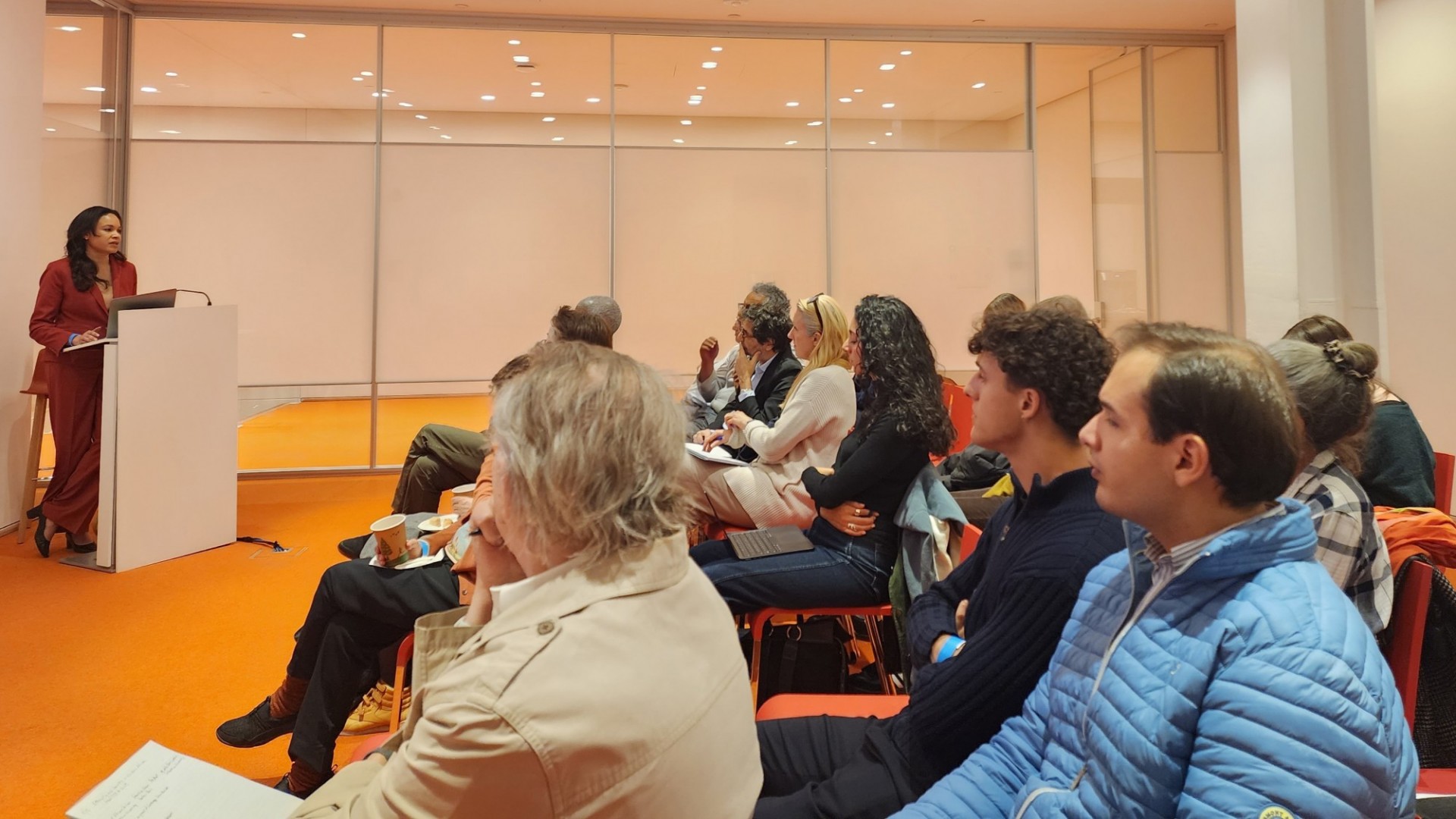CGC Tunis and the Institute of African Studies at Columbia University, in collaboration with the Metropolitan Museum of Art, hosted a discussion at The Forum at Columbia University, on November 15th, co-sponsored by the Middle East Institute at Columbia University.
It transcended temporal boundaries and academic disciplines, with an overview of cultural interactions from the early Byzantine period, a glimpse through the multilingualism of medieval Islamic times' elites, and a musical journey into the postcolonial identity-construction in the Maghreb.
Reflecting on the medieval period, we looked at how major cities in North Africa and Egypt served as vibrant centers of diversity and multiculturalism. During this epoch, individuals engaged in lively debates and self-reflection regarding their identity, fostering connections with their ethnic communities and beyond. Simultaneously, it was a time marked by the harsh realities of discrimination and exclusion experienced by different groups. That exclusion continued to be operated in the following eras, including the postcolonial one, as evidenced by the construction of postcolonial identity through music in a number of Maghrebi countries. But, as always, counternarratives emerged, and diversity prevailed.
Chaired by Pr. Souleymane Bachir Diagne and featuring Dr. Andrea Achi, Pr. Taoufik Ben Amor, and Pr. Avinoam Shalem as speakers, the event not only brought historical nuances to light but also emphasized the enduring and complex entanglements around identity and ethnicity in Northern Africa. It underscored the pressing need to address these issues in the contemporary context, creating a platform for attendees to engage with diverse perspectives.
The result was a profound and enriched understanding of the historical and cultural intricacies that continue to shape the region. As participants delved into the past, they found relevance and insight that resonated with the challenges faced by modern societies, highlighting the timeless nature of these discussions and their impact on shaping a more inclusive future.

